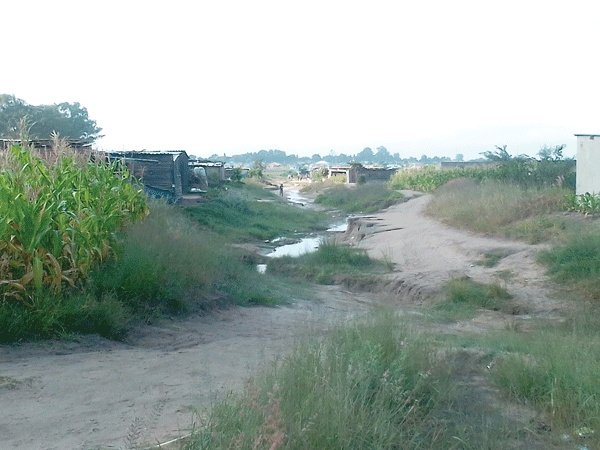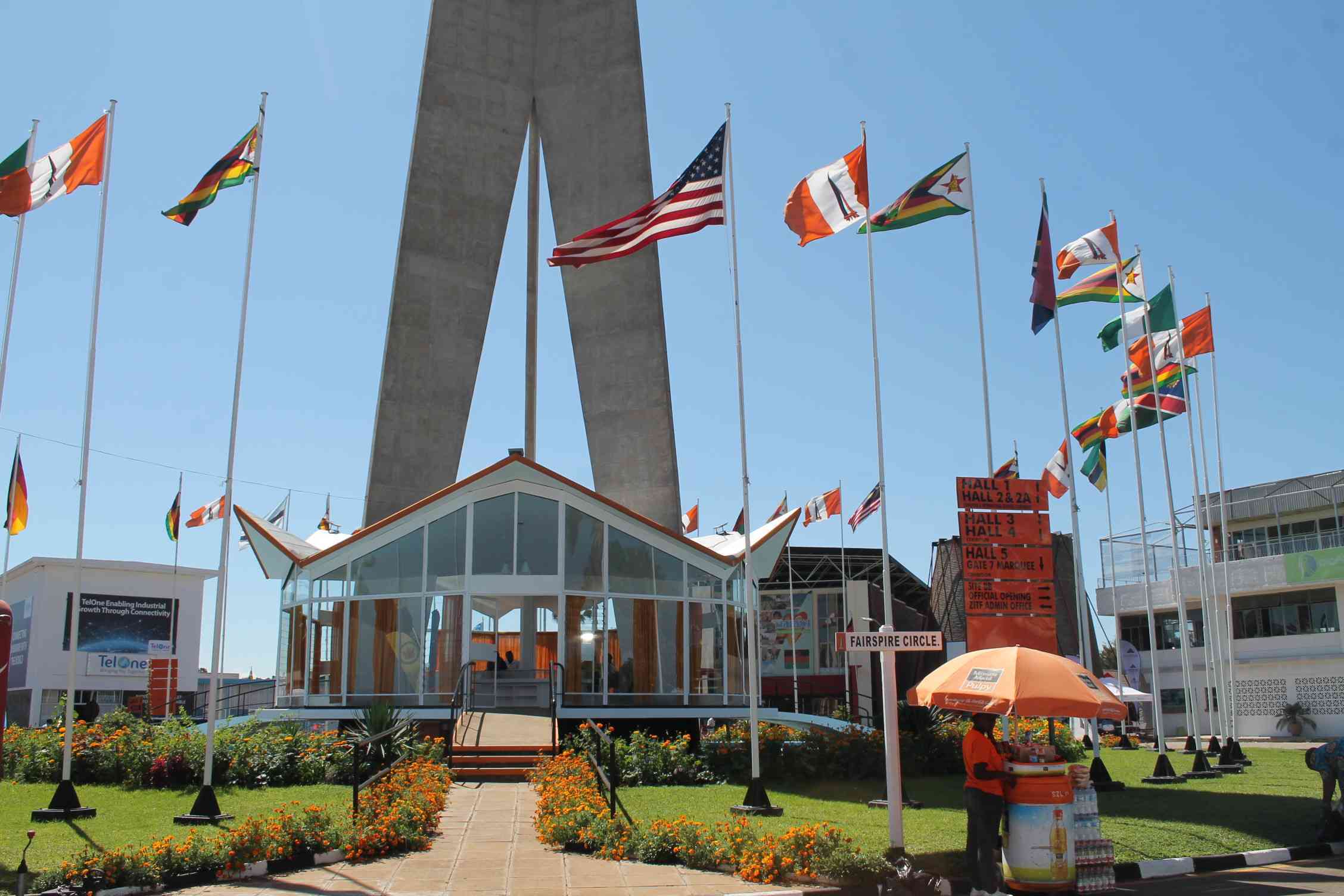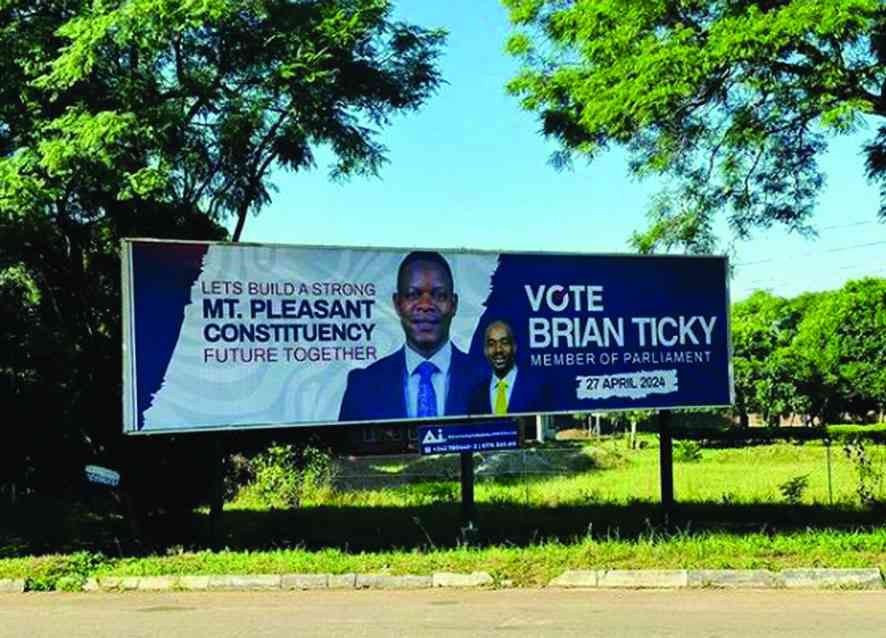
BY TONDERAYI MATONHO OWNING a house or a residential stand are the main attractions that have drawn most people into the urban areas.
For many fortunate ones like Rosalina Jose Verde (29), a vendor, this dream has come true but at a huge cost.
The urban area has become a harsh and disillusioning place. Moreso, with the advent of climate change — the fast-changing weather conditions over time characterised by heat waves, flash floods and erratic rainfall.

Most of the country’s cities lack modernised waste disposal systems to support the emerging or peri-urban settlements that have mushroomed on the fringes of the white-owned former commercial farms.

Contemplating on the packed day’s work schedule lying ahead, Jose Verde has since stopped complaining about the lack of these amenities which have become the ‘new normal’, any way!
She lives in “Gada”, an emerging sprawling informal settlement, sand-witched between Epworth, further to the south-west- of the capital and the middle-income Southlea Park, adjacent to the Harare-Mutare Highway.
- Chamisa under fire over US$120K donation
- Mavhunga puts DeMbare into Chibuku quarterfinals
- Pension funds bet on Cabora Bassa oilfields
- Councils defy govt fire tender directive
Keep Reading
Peri-urban settlements like “Gada”, Hopley, Caledonia or East View and many others are off-shoots of “Zimbabwe’s fast-track land reform programme, highly characterised by urban-urban migration and rapid urbanisation.
🔴Climate change poser for Zim cities🔗https://t.co/0rAOnfpRPG pic.twitter.com/q3Bw5Pq6tS
— NewsDay Zimbabwe (@NewsDayZimbabwe) March 8, 2022
These “new” settlements lack the basics such as sewage and water systems.
Living under these negative conditions has become a health time-bomb; fertile grounds for climate change impacts like dirty and stagnant pools of water from flash floods, waste disposal dumping areas, all breeding grounds for mosquitoes and water-and vector-borne diseases.
“The flood of people into peri-urban land, mostly developed by destroying pristine forests and woodlands in the name of creating human settlements, has become a major challenge facing urban planners, many of whom did not even fathom climate change affecting urban communities,” said Luke Chinanzvavana, environmentalist and urban disaster risk expert, in an interview recently.
“Efforts have to be made by local and central authorities to take climate change into consideration when carrying out or planning today’s human settlements,” he said.

Chinanzvavana noted that part of the justification for belated entry of development partners into urban disaster risk reduction has been the belief that urban problems were largely a function of infrastructure planning, and so were best addressed by engineering technological solutions.
However, even engineering is not a technical act alone; the choice, design standards and delivery of engineering projects are embedded in the politics and power relations of the city.
Government and development partners alike have developed agendas over the past decade or so for urban disaster risk reduction and management.
However, the depth, variation and scale of Zimbabwe’s urban disaster risk has, arguably, been less researched and documented.
“Local urban pressures have been identified through studies influencing local health hazards and also social vulnerability relating to better housing and sustainable environments”, a senior official in the Harare City Council’s health department, speaking on condition of anonymity, pointed out in an interview recently.

A recent “stocktaking workshop” on the National Adaptation Plan that was established in 2010 as part of government’s efforts to reduce vulnerability to the impacts of climate change also witnessed strong calls for research and understanding by local authorities on the various climate change impacts that cities are currently grappling with.
A former senior official in the Local Government ministry is on record saying: “Cities, municipalities, towns and local boards need to understand their exposure and it is crucial that we need to start to plan for climate change by integrating it into our development processes rather than waiting to respond to it”.
Climate Change Department director in the Climate and Water ministry, Washington Zhakata, said the impact of climate change on the country’s cities was on-going, and the negative implications were a threat to citizens.
“Cities and their environs face significant impacts from climate change, both now and into the future. In addition, climate change impacts range from an increase in extreme weather events such as hotter temperatures, droughts, floods and public health concerns as we have been experiencing in the past few years,” he said.
“Water, at once the most vital and now the scarcest and abused resource, best illustrates the precarious relationship that exists between cities and their environments.”

Zhakata added that the infrastructural developments in the country’s cities were not fully responding to the on-going climate change adaptation, adding that there was need for more awareness and technical support in all the developments.
Zimbabwe has recorded tremendous shifts in climatic patterns in the past few years, with increased temperatures and rainfall, consequently leading to flooding in most urban areas, also resulting in a host of diseases that thrive under extreme environmental conditions.
Until about 2010, it had taken a long time, perhaps too long, for the world, Zimbabwe included, to face the facts: the earth is getting warmer and human beings are mainly to blame.
Twelve years down the line, the climate has been thrown completely out of kilter and each day brings fresh proof: more frequent and more heat waves, violent cyclones and floods in Zimbabwe.

Scientists first raised alarm more than 30 years ago, with interval intergovernmental panel on climate change reports providing analyses of studies carried out by researchers worldwide, regularly assessing the situation and charting the likely evolutions of climate.
- This story was produced under the WAN-IFRA Media Freedom African Media Grants initiative










